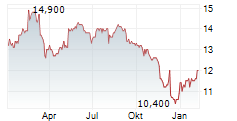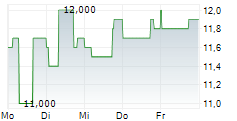
Workers dissatisfied with their physical health score 25 points lower in mental health than satisfied workers and lose an additional 23 working days in productivity annually
LONDON, Nov. 19, 2024 /PRNewswire/ -- Today, TELUS Health released its TELUS Mental Health Index ("the Index") with reports that examine the mental health of employed people in the United Kingdom, the United States, Canada, Europe, Singapore, New Zealand and Australia. The UK report revealed that physically active workers lose 12 fewer work days of productivity than their sedentary counterparts. The Index also found that workers dissatisfied with their physical health score 25 points lower in mental health and lose 23 more days of productivity annually than satisfied counterparts.

"There is a clear link between physical activity, employer support and employee wellbeing. At TELUS Health, we've seen that supported, active employees have better mental health and higher productivity - outcomes for which every business owner strives" said Paula Allen, Global Leader, Research & Client Insights, TELUS Health. "This underscores the need for organizations to prioritize wellbeing as a strategic pillar of business success. By integrating robust support systems like Employee Assistance Programs (EAPs) and physical health and wellbeing programs into workplace culture, companies can create a more resilient, engaged and productive workforce."
The TELUS Mental Health Index also found:
- Workers uninterested in improving health lose 20 more work days in productivity annually than those motivated.
- Workers perceiving poor employer support for their physical wellbeing lose 28 more work days of productivity annually and score 16 points lower in mental health than those motivated.
- Eleven per cent of workers surveyed never engage in physical activity.
- Stress reduction motivates 10 per cent of workers to exercise.
- Fewer than one in ten (seven per cent) report engaging in activities that promote social wellbeing.
- Thirty-three per cent of workers remain at high mental health risk.
- Sixteen per cent of employees report anxiety, 12 per cent depression and six per cent sleep disorders.
- Employees without emergency funds are twice as likely to seek stress reduction, more than three times as likely to report anxiety and four times as likely to report being diagnosed with depression.
"Our latest findings underscore the vital role employers play in supporting their workforce's physical wellbeing. To foster a healthier, more productive work environment, organizations should consider implementing comprehensive wellbeing programs that go beyond traditional benefits," said Philip Mullen, Vice President EMEA, TELUS Health. "This could include offering on-site fitness facilities or subsidized gym memberships, organizing team sports or activity challenges and promoting regular movement breaks throughout the workday. Additionally, employers can encourage active commuting by providing bike storage or shower facilities. By integrating physical activity into the workplace culture and providing the necessary resources and support, companies can create an environment that not only enhances employee health but also drives business success through improved engagement and productivity."
While many workplaces offer Employee Assistance Programs (EAP) that could help support employees in this situation, TELUS Health research reveals that 68 per cent of workers in the UK are unsure whether or not their employer offers an EAP. The mental health scores of workers who don't know or report that their employer doesn't offer an EAP is at least three points lower than workers with an EAP.
In September 2024, the mental health scores of workers in various regions were:
- United States: 70.6
- United Kingdom: 64.6
- Canada: 64.4
- Australia: 61.1
- Singapore: 61.6
- Europe: 61.6
- New Zealand: 59.7
The TELUS Mental Health Index is based on a response scoring system that turns individual responses into point values. Higher point values are associated with better mental health and less mental health risk. Scores between 0 to 49 correspond with distress levels, scores between 50 to 79 correspond with strain levels and scores between 80 to 100 correspond with optimal levels of mental health.
This TELUS Mental Health Index also includes insights related to workplace productivity and motivation in addition to burnout levels and causes. Read the full UK TELUS Mental Health Index here.
About the TELUS Mental Health Index
The data for the TELUS Health Mental Health Index was collected through an online survey from September 16 to October 1 with 2,000 respondents. All respondents reside in the United Kingdom and were employed within the last six months. The data has been statistically weighted to ensure the regional and gender composition of the sample reflects this population.
About TELUS Health
TELUS Health is on a mission to become the most trusted wellbeing company in the world by enhancing the overall efficiency of healthcare and championing workplace wellbeing. By integrating advanced healthcare technology with comprehensive employee support services, TELUS Health provides a holistic approach to primary and preventive health and wellbeing for over 76 million people across 160 countries. Our innovative digital health platforms, including electronic medical records (EMRs) and virtual care solutions, empower healthcare professionals, employers and governments to deliver personalized care efficiently. Our employee wellbeing programs empower individuals by offering extensive support through Employee Assistance Programs (EAPs), mental health resources, financial counselling, and workplace wellness initiatives. At TELUS Health, we are committed to revolutionizing healthcare to ensure people receive the support they need and employees thrive both personally and professionally. Together, let's make the future friendly. For more information, visit: www.telushealth.com.
Media Contact:
Hanover Communications
Email: telushealth@hanovercomms.com
Photo - https://mma.prnewswire.com/media/2561214/TELUS_Health_TELUS_Mental_Health__Physically_active_workers_lose.jpg
![]() View original content:https://www.prnewswire.co.uk/news-releases/telus-mental-health-physically-active-workers-lose-12-fewer-workdays-of-productivity-annually-than-sedentary-counterparts-302309922.html
View original content:https://www.prnewswire.co.uk/news-releases/telus-mental-health-physically-active-workers-lose-12-fewer-workdays-of-productivity-annually-than-sedentary-counterparts-302309922.html





